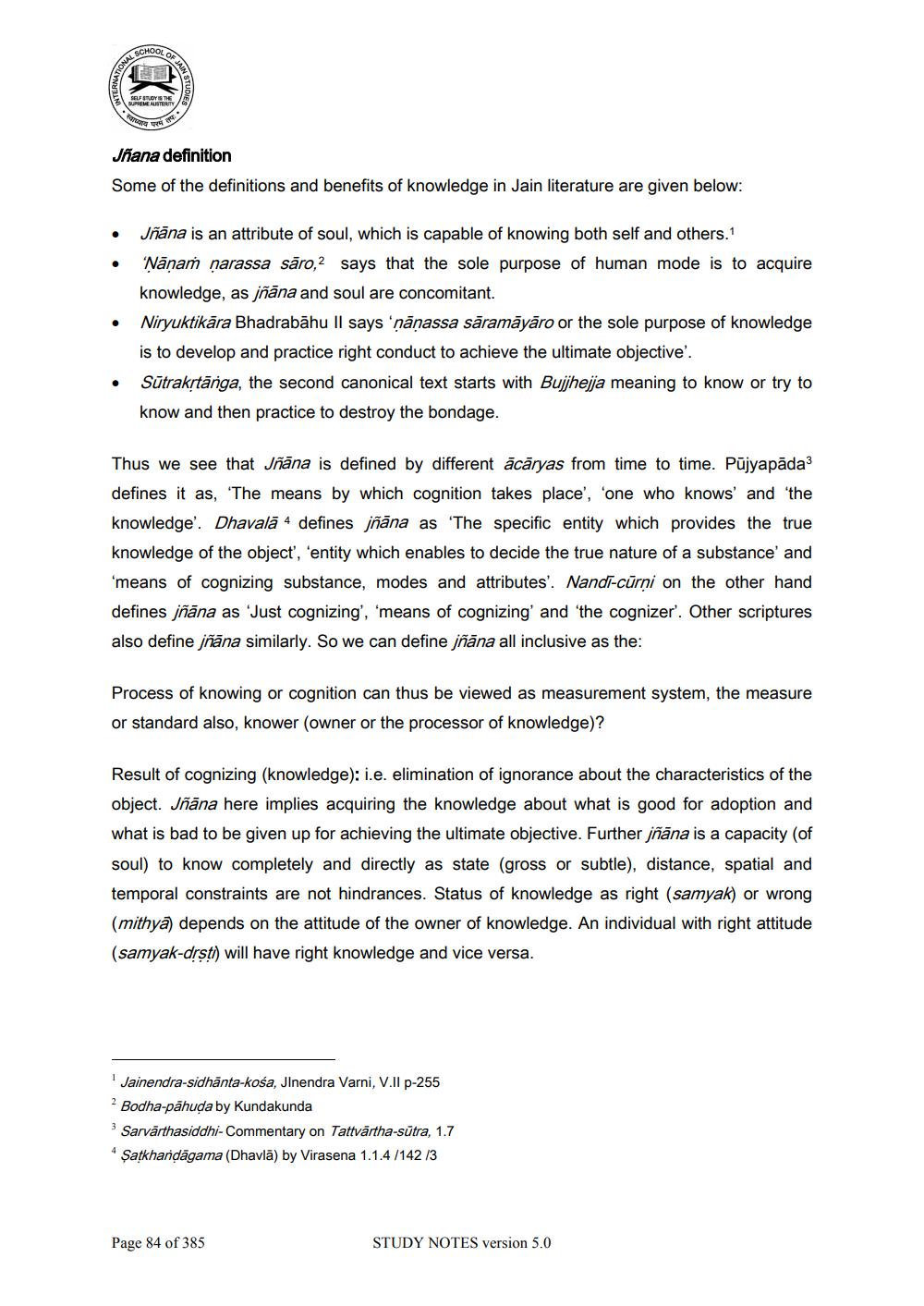________________
Jñana definition Some of the definitions and benefits of knowledge in Jain literature are given below:
• •
Jñāna is an attribute of soul, which is capable of knowing both self and others.1
Nāņań narassa sāro, says that the sole purpose of human mode is to acquire knowledge, as jñāna and soul are concomitant. Niryuktikāra Bhadrabāhu Il says 'nāṇassa sāramāyāro or the sole purpose of knowledge is to develop and practice right conduct to achieve the ultimate objective'. Sūtrakıtānga, the second canonical text starts with Bujjhejja meaning to know or try to know and then practice to destroy the bondage.
Thus we see that Jnāna is defined by different ācāryas from time to time. Pūjyapāda3 defines it as, 'The means by which cognition takes place', 'one who knows' and 'the knowledge'. Dhavalā 4 defines jñāna as 'The specific entity which provides the true knowledge of the object', 'entity which enables to decide the true nature of a substance and 'means of cognizing substance, modes and attributes'. Nandi-cūrni on the other hand defines jñāna as 'Just cognizing', 'means of cognizing' and 'the cognizer'. Other scriptures also define jñāna similarly. So we can define jñāna all inclusive as the:
Process of knowing or cognition can thus be viewed as measurement system, the measure or standard also, knower (owner or the processor of knowledge)?
Result of cognizing (knowledge): i.e. elimination of ignorance about the characteristics of the object. Jñana here implies acquiring the knowledge about what is good for adoption and what is bad to be given up for achieving the ultimate objective. Further jñāna is a capacity (of soul) to know completely and directly as state (gross or subtle), distance, spatial and temporal constraints are not hindrances. Status of knowledge as right (samyak) or wrong (mithya) depends on the attitude of the owner of knowledge. An individual with right attitude (samyak-drsti) will have right knowledge and vice versa.
Jainendra-sidhānta-kosa, Jlnendra Varni, V.Il p-255 2 Bodha-pähuda by Kundakunda 3 Sarvarthasiddhi- Commentary on Tattvārtha-sūtra, 1.7 * Satkhardāgama (Dhavlā) by Virasena 1.1.4/142/3
Page 84 of 385
STUDY NOTES version 5.0




